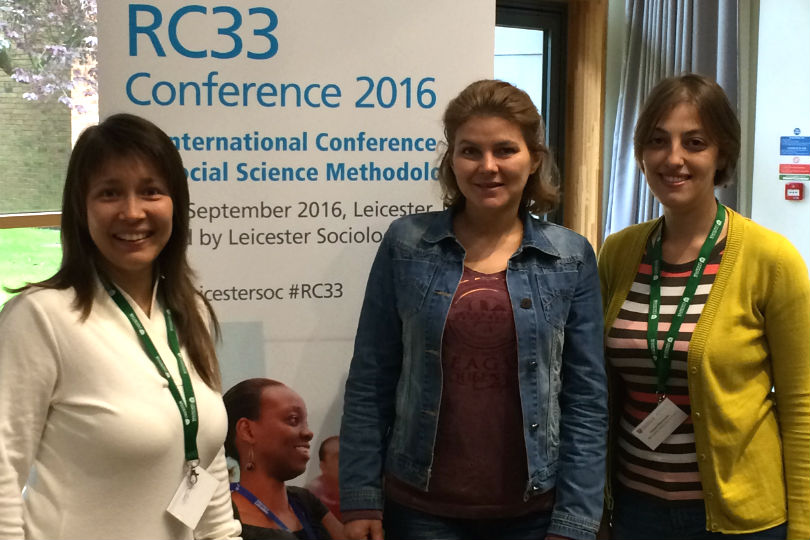9th International Conference on Social Science Methodology
On September 11-16 the 9th International Conference on Social Science Methodology was held in Leicester, UK. The event was organised by the International Sociological Associaton (ISA) Research Committee on Logic and Methodology (RC33). The conference takes place every four years and brings together over 500 researchers from Europe, North America and South East Asia. Staff members of the School of Sociology - Inna Devyatko, Aigul Mavletova, Olga Savinskaya and Tatiana Khavenson — took part in the event.

Conference participants traditionally discuss the trends and problems of the development of both quantitative and qualitative methods. This year they also considered big data and new methodological research directions – including strategies for mixed methods, and the problems of conducting cross-cultural research projects, etc.
Inna Devyatko, Professor at the School of Sociology, presented a report on ‘Virtual labs, social telescopes and other metaphors of innovative online methods: new opportunities and new challenges to validity of social science research’ during the session ‘New data, new quality? Features of data quality in the “data revolution” era’.
Olga Savinskaya presented a report entitled ‘Exploratory sequential design: Toward the inductive and deductive transfer of knowledge’. She spoke about techniques used for improving the quality of knowledge integration, about methods for integrating controversial data and the effect these can bring. Savinskaya shared her experience of applying the ‘Qual-Quant’ strategy to her study of the parental assessment of pre-school education.
Aigul Mavletova organised a session on the gamification of surveys, a topic that attracted a lot of interest. Mavletova presented some of the features of using gamification in risk communication. In addition, she made recommendations on when and in which cases it is better to gamificate data collection, and how to make this process more efficient.
Tatiana Khavenson participated in the section ‘Measuring social structure in surveys: Reviewing existing concepts and measures of social structure in surveys’. Tatiana’s report ‘How well School Age Children Report Family SES. Systematic Review’ was dedicated to the assessment of the responses of school students to factual questions about the profession and education of their parents and other indicators of the social status of the family.